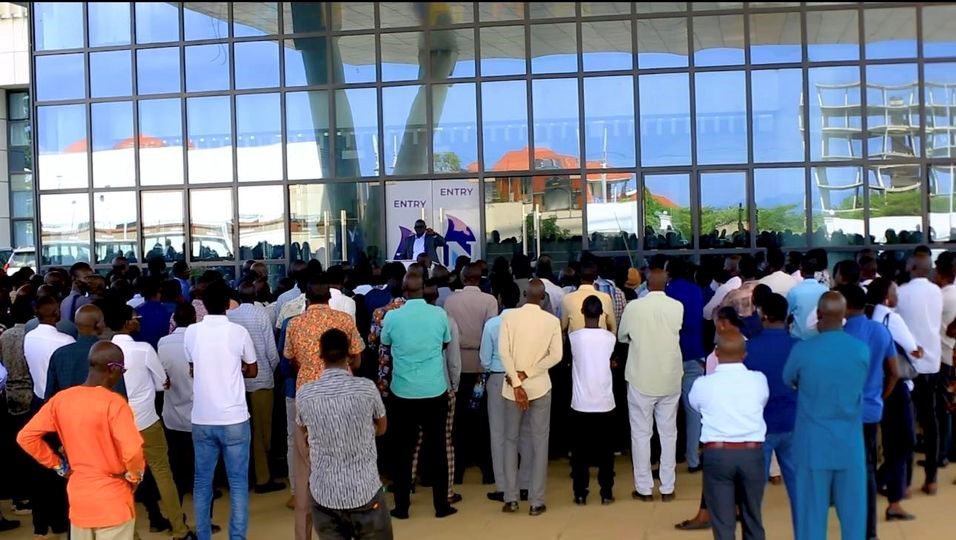By Kidega Livingstone
Nile Petroleum Cooperation is facing a major crisis as staff have initiated a strike in response to a 50 per cent salary reduction amidst the ongoing economic turmoil.
“All staff members will participate in the peaceful demonstration,” John Kongo, a senior officer at NilePet confirmed to No. 1 Citizen Daily Newspaper.
“All the staff are aware because they have been asked by the committee to report to the general headquarters tomorrow morning [today morning],” he said.
According to a statement seen by this outlet, the staff outlined several grievances that led to the peaceful demonstration, including salary deductions, the elimination of Easter bonuses, the discontinuation of clothing, fuel accommodation, and child support allowances, the cancellation of medical insurance, and the suspension of food item distribution.
It stated that the sit-down strike would continue until the higher authorities of the country find fair solutions to address these concerns.
In response to the unrest, Eng. Bernard Amour, the Managing Director of Nilepet Petroleum Cooperation, explained that the decision to reduce salaries by 50 per cent was made to preserve staff positions during the economic crisis.
Amour described the salary cut as an informed and necessary measure to ensure job security for everyone.
“It was a very informative decision, and it was also a decision that makes sure that everyone is not losing his or her job,” he said in a video posted on NilePet’s social media Page.
He said the decision was taken due to a decrease in revenue from the oil sector, a consequence of the conflicts in Sudan and the Red Sea region.
“Generally, that was the best option for now. If the situation continues to go the way, it is other options will have to come in. We are all affected by geopolitical issues related to oil,” he said.
In March 2024, South Sudanese officials issued warnings that the country’s oil sector had been significantly disrupted by the war in Sudan and the conflict in the Red Sea, posing a risk to stability in East Africa.
Sudan has declared force majeure on crude oil exports from landlocked South Sudan, following a major rupture in the pipeline carrying crude to a port in Sudan.
This was a result of a rupture of the pipeline in a “military operations area” close to a pumping station.
Damage to the pipeline, on which South Sudan’s crude oil exports depend, was first detected when a blockage on the pipe was detected and later cleared.
But several days later, the pipeline lost pressure and a leak was detected.
Repair works were impeded by the current war conditions in Sudan.




